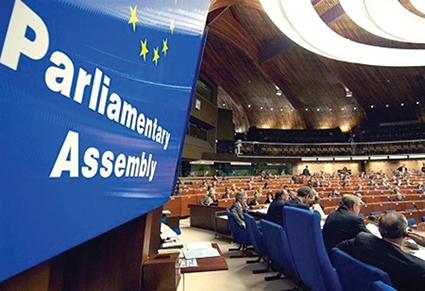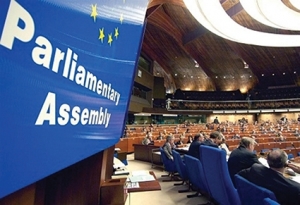Georgia Looking Good, but Could Be Better in the Eyes of the EU
The European Commission published a report last week on Georgia’s reform process, assessing the overall achievements of the country throughout the past year.
According to the document, in 2014-2015 Georgia made overall substantial progress regarding the effective implementation of human rights protection, democracy and fundamental rights. “The adoption and start of implementation of the National Human Rights Strategy and Action Plan as well as of the Gender Equality Strategy and Action Plan in 2014 were particularly important and represented significant improvements in Georgia’s policy in these areas,” the report reads.
As the document says, Georgia fulfilled all the objectives set out under the 2014-2015 Human Rights Action Plan for 2014 and is progressing well on the implementation of the goals planned for 2015, especially on the integration of minorities.
“In particular, there were important achievements in terms of the proper conduct of the 2014 municipal elections, increased judicial independence (including the election of a new and first female chief judge), humanization of criminal policies (reflected notably by proportionate sentences, a reduction of pre-trial detentions, a fairer plea bargaining system and the recognition of victims’ rights), progress on juvenile justice through the adoption of a juvenile justice code, prison mortality reduced to a low level and an improved treatment of prisoners,” the report says.
The report also highlights the parliament’s “strengthened role,” referring to the 2014 anti-discrimination law, “a new anti-discrimination mechanism that became operational in October 2014 and embedded in the Public Defender’s Office.”
In addition, institutional reforms were emphasized, especially ones launched by the Prosecutor’s Office in December 2014.
“The Georgian authorities started to prepare the next human rights action plan (for 2016-2017), which would cover new areas such as election rights and rights to quality education and healthcare,” the European Commission says.
However, the EU Commission mentioned that noticeable shortcomings remain in several areas covered by the conventions, and further work to tackle them would be necessary in the future. “Particular attention should also be paid to media freedom and pluralism,” the report reads.
Following the positive assessment of the country’s progress with minor shortcomings, the Parliamentary Assembly of the Council of Europe (PACE) adopted a document stating a situation in terms of protecting human rights defenders in Georgia that “seems to be worsening,” referring to human rights protectors and organizations operating in the country.
“The Assembly notes that in the majority of the Council of Europe member states, human rights defenders are free to work in an environment conducive to the development of their activities. However, it is deeply concerned about increased reprisals against human rights defenders in certain member states, including Azerbaijan, the Russian Federation and Turkey,” the report reads.
According to the report, there have also been alarming signs of deterioration in certain member states, including Georgia, namely public attacks, threats to release material allegedly compromising to prominent human rights defenders, physical attacks, and pressure and intimidation against lawyers, including lawyers working on politically sensitive cases.
The Assembly condemns these practices and supports the work of human rights defenders, who put at risk their security and personal life for the promotion and protection of the rights of others, including those from the most vulnerable and oppressed groups (migrants and members of national, religious or sexual minorities) or to combat impunity of state officials, corruption and poverty.
The major parliamentary opposition, the United National Movement (UMN) demanded that the government keep this in mind and to carefully follow the recommendations of all Georgia’s strategic partners, such as the European Union.
What makes the two political institutions of one Europe so different in assessing Georgia’s political and democratic achievements? The roots of the problem could be traced through Georgia’s plunging political progress achieved as a result of several elections and other major reforms during the past three years. In particular, railing against media institutions, such as the nation’s leading TV Company Rustavi 2, not only shook the image of the Georgian Dream coalition and the government, but also the country’s image in the region as a success story.
Although the overall political processes and the winds of conspiracy around Rustavi 2 have become relatively calmer, the country has not fully yet transferred to the active pre-election process which is expected from late spring. Political analysts and other experts assume the upcoming summer will be one of the hottest for Georgia’s political life.
Zviad Adzinbaia












